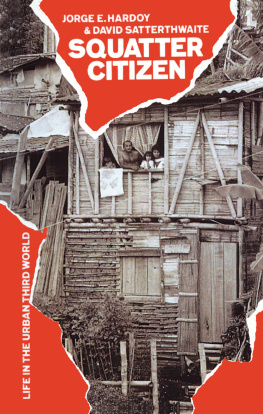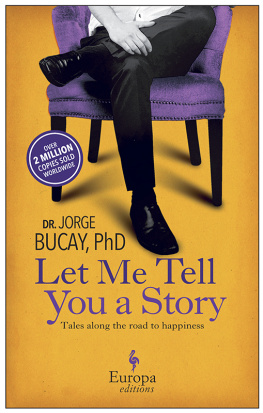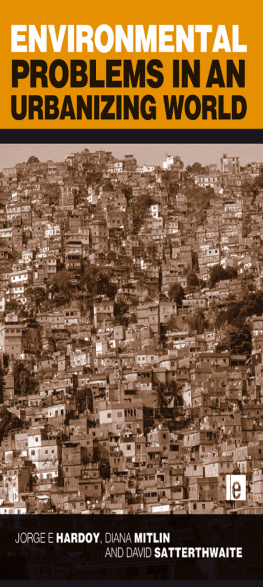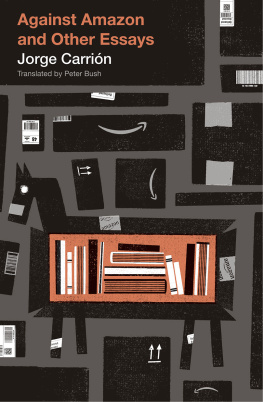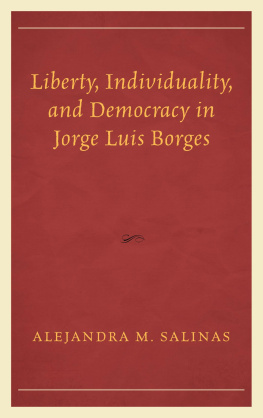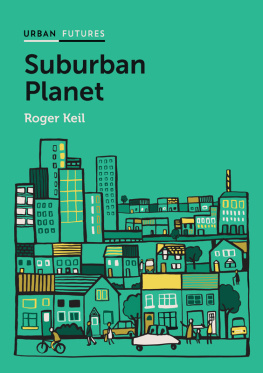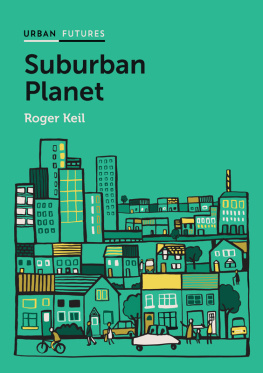First published in 1989 by Earthscan
This edition published 2013 by Earthscan
For a full list of publications please contact:
Earthscan
2 Park Square, Milton Park, Abingdon, Oxon OX14 4RN
Simultaneously published in the USA and Canada by Earthscan
711 Third Avenue, New York, NY 10017
Earthscan is an imprint of the Taylor & Francis Group, an informa business
Copyright Jorge Hardoy and David Satterthwaite, 1989
All rights reserved. No part of this book may be reprinted or reproduced or utilised in any form or by any electronic, mechanical, or other means, now known or hereafter invented, including photocopying and recording, or in any information storage or retrieval system, without permission in writing from the publishers.
A catalogue record for this book is available from the British Library
Production by David Williams Associates
Typeset by Rapid Communications, London WC1
ISBN: 978-1-85383-020-4 (pbk)
We have many people to thank for their help in preparing and publishing this book. We are particularly grateful to Neil Middleton and Richard Sandbrook for encouraging us to write it, and to Diana Mitlin for the care with which she read and commented on the draft manuscript. Special thanks also to Bob Buckley and Julio Davila for comments on parts of the text and to Sara Dunn, Lavinia Greenlaw and, again, Neil Middleton for making the book more readable, and Radhika Holmstrom and Kate Griffin for its promotion.
Squatter Citizen is based on various papers, articles and briefing documents that we wrote between 1983 and early 1989. The works on which each chapter is based are listed along with other sources and references (see ) we return to our original version as the basis for the text.
Much of this book is based on previously published work which has been much expanded and updated and many more examples have been introduced. The text has been organized in eleven relatively short sections (nine chapters, an introduction and an epilogue) so that what had previously been published as one paper may now be divided between two or more chapters.
We have tried to make the text more readable for a general audience. With the help of Earthscans editors, jargon and specialist terminology have been cut to a minimum. Boxes are included in each chapter to provide more and more detailed examples. When writing on subjects as broad as life in the urban Third World examples are needed to illustrate points and to stress the diversity of circumstances, but too many can make a text rather heavy to read and the line of its argument difficult to follow. Since 1979, we have experimented with the use of boxes to allow the inclusion of many detailed examples without making the text too long.
In writing this book, we drew on the research and writings of dozens of friends and colleagues. Special mention should be made of the teams in India, Nigeria, the Sudan and Argentina with whom we have collaborated since 1977 as part of the International Institute for Environment and Developments (IIED) Human Settlements Programme: the Centre for Urban and Regional Research (Centro de Estudios Urbanos y Regionales) in Buenos Aires, the Lagos Group for the Study of Human Settlements, the International Institute for Development Research in Allahabad, and the Sudanese Group for Assessment of Human Settlements (University of Khartoum).
Since 1977, we have worked together on four topics. The first was popular settlements and the problems faced by their inhabitants. Different kinds of popular settlement were studied: some formed by squatter invasions, others by gradual illegal encroachment, others by becoming incorporated into an expanding city after first developing as rural settlements. One study also concentrated on innercity tenements and cheap boarding houses (in Buenos Aires) while another in Khartoum looked at the development of rental housing sub-markets. In each study, researchers established contacts with community organizations and provided technical and professional advice on upgrading and legal issues relating to tenure. Most of the funding came from the International NGO Division of the Canadian International Development Agency with supplementary funds from the United Nations Centre for Human Settlements (Habitat).
The second topic for collaborative research was the links between housing and health. We examined the health problems faced by the inhabitants of selected illegal settlements and the extent to which such problems are linked to housing and environment. This research also had action aspects as the researchers worked with the inhabitants of these settlements to tackle some of their more serious health problems. This was funded by the Ministry of Housing, Physical Planning and the Environment in the Netherlands, with additional support from the World Health Organization (WHO).
The third topic was a series of national assessments in which teams visited different nations to assess housing, land and settlement policies to gauge the extent to which governments were implementing the recommendations they had officially endorsed at the United Nations Conference on Human Settlements (Habitat) in 1976. Thirty-one national assessments were completed in three phases: the first on the larger market-oriented Third World nations, the second on small-population nations, the third on nations which had recently undergone rapid social change. This work was funded by the International NGO Division of the Canadian International Development Agency and by the United Nations Centre for Human Settlements.
The fourth topic was the present and potential role of small and intermediate sized urban centres in national, regional and rural development. Each team studied the development of urban systems within a region in their nation over 70 or more years, to provide a more detailed understanding of the forces and factors which influence the development of different urban centres. IIED staff undertook a review of existing empirical and theoretical literature on this subject. This work was funded by the Swedish Agency for Research Cooperation with Developing Countries, the Swedish Council for Building Research and the United Nations Centre for Human Settlements (Habitat).
Squatter Citizen also draws on research undertaken by IIED-America Latina, IIEDs independent Latin American office in Buenos Aires. The work noted above on small and intermediate urban centres has been developed in Latin America, working with the Latin American Office of the United Nations Development Programme and the United Nations Fund for Population Activities. This has developed policy guidelines for governments and international agencies and has included a series of national-and city-level case studies. IIED-America Latina is also part of a network of institutions investigating the constraints faced by local governments in improving shelter conditions and providing basic infrastructure and services. New research programmes have also been developed on themes such as the causes and consequences of natural disasters, especially the effects on poorer groups, and the extent to which aid agencies fund projects for meeting basic needs and for supporting urban development.


